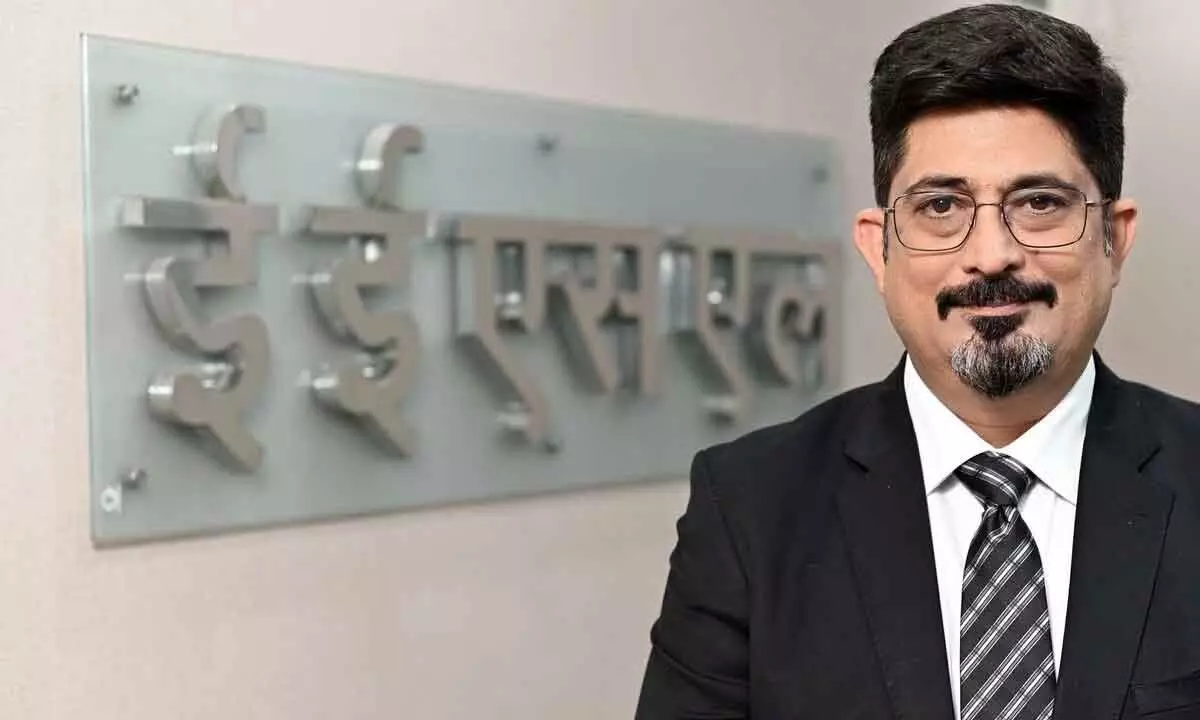AP govt to set up 400 EV charging stations
The State govt intends to install EV charging points every 25 kms along national highways and every 3 kms within city limits
image for illustrative purpose

AP’s strategy for EV revolution
Aligning with India’s net-zero emissions goal by 2070
Offering State govt employees 1 lakh EVs on EMI with incentives
Establishment of 400 EV charging stations across the state
Vijayawada: Andhra Pradesh has adopted a multi-pronged strategy to usher in electric vehicle (EV) revolution.
While explaining the various initiatives related to e-mobility, officials from AP briefed Vishal Kapoor, CEO of Energy Efficiency Services Limited (EESL) that the AP government is taking steps to usher in an e-revolution, aligning with the government of India’s policy, which aims for net-zero emissions by 2070.
The CEO appreciated the Energy Department for initiating stringent steps to provide one lakh EVs to the State government employees on an EMI basis, coupled with benefits like road tax exemptions and waiver of registration fees, fostering a conducive environment for e-mobility.
The officials said the State government is establishing approximately 400 EV charging stations across various locations. Presently, 266 stations are operational, with the rest in the pipeline. Additionally, the government intends to install EV charging stations every 25 kms along national highways and every 3 kms within city limits, with 4,000 locations already earmarked for this purpose.
In an unequivocal stride towards a sustainable future, India is intensifying its commitment to electrify public transportation.
EESL and Convergence Energy Services Limited (CESL) are leading the charge and pioneering transformative initiatives that promise a cleaner, greener era for India’s mobility landscape while embracing the global call for eco-friendly initiatives outlined in the G20 declaration.
Kapoor informed a review meeting on Sunday that India has set an ambitious target of achieving 30 per cent EVs by 2030, promising to curtail 846 million tonnes of CO2 emissions and reduce oil imports by 474 million tonnes.
This commitment is realised through schemes and policies such as FAME (Faster Adoption and Manufacturing of Hybrid and Electric Vehicles), PLI (Production Linked Incentive) for advanced chemistry cell (ACC) battery manufacturing, and e-AMRIT (Electric Mobility Adoption Readiness Index Tool). Notably, the EV market, particularly in the two-wheeler and three-wheeler segments, accounts for over 80 per cent of total EV sales in 2023, with manufacturers like AVERA leading the charge.
Kapoor reiterated their unwavering commitment to advancing sustainable public transport. EESL champions the National Electric Bus Program, a monumental initiative deploying thousands of electric buses nationwide. Vishal underscored EESL’s groundbreaking demand aggregation model, optimising procurement and drastically reducing costs, rendering electric buses economically viable for operators nationwide.

